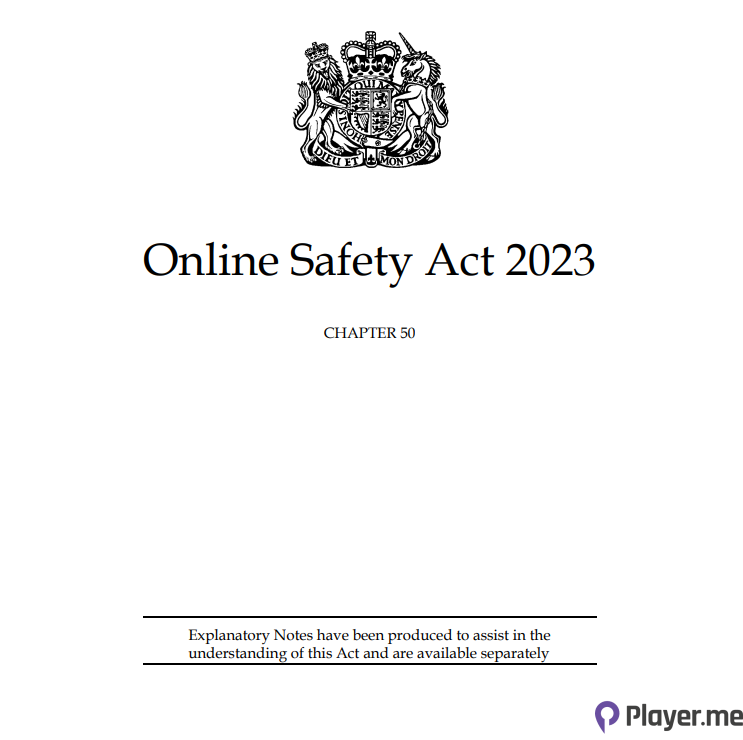The digital landscape is constantly evolving, and with it comes a growing concern for online safety. The United Kingdom has taken a significant step in addressing this issue by introducing its newest Online Safety Law. Yet, not everyone can adapt to this law as swiftly as expected. Let’s have a look at the Online Safety Law and the challenges faced by tech companies.
What Is the Online Safety Law?

The Online Safety Law, officially known as the Online Safety Act, is a groundbreaking piece of legislation that has recently received Royal Assent. It represents a paradigm shift in how the UK approaches online safety, aiming to make the country the “Safest place in the world to be online”. The Act imposes a legal responsibility on tech companies to prevent and rapidly remove harmful and illegal content, including but not limited to terrorism content, Child Sexual Abuse Material (CSAM), and revenge pornography.
Understanding the Key Requirements
The Online Safety Law significantly increases the responsibilities of online service providers. It applies to two main categories:
User-to-user services: This includes internet services where content is generated by one user and can be encountered by another user.
Search services: These are internet services that include search engines, allowing users to search across multiple websites or databases.
Under the law, social media platforms and search engines are now legally obliged to proactively take measures to ensure online safety. This marks a departure from the previous approach, where these companies typically reacted to harmful content only after it was flagged by users. Now, they must act to prevent such content from appearing in the first place.
The Key requirements include:
1. Swift removal of illegal content or preventing its appearance, including content promoting self-harm.
2. Prevention of children from accessing harmful and age-inappropriate content, such as explicit material, content that encourages self-harm, or content depicting serious violence or bullying.
3. Ensuring platforms are transparent about the risks and dangers they pose to children, including conducting risk assessments.
Ofcom, the UK’s telecoms regulator, has a crucial role in enforcing the Online Safety Act. It can impose fines of up to 10% of a company’s global annual revenues for breaches, with executives potentially facing jail time for repeat offences.
Balancing Online Safety with Privacy
The Online Safety Law has not been without controversy. One contentious aspect is the potential impact on privacy and freedom of expression. To address these concerns, Ofcom has developed codes of practice for digital platforms. These codes are nonbinding and act as a “Safe harbour”, allowing companies to take a different approach to meet their duties. However, compliance is essential to prevent potential fines and legal consequences.

Tech companies, including WhatsApp and Signal, have expressed concerns over the possibility of having to weaken encryption to comply with the law. The law does not require companies to break end-to-end encryption, a mechanism that ensures secure messaging between users. While there are powers in the bill that could be used to force encrypted messaging apps to scan messages for CSAM, they are not expected to be consulted on until 2024 and may not come into force until around 2025. It remains uncertain whether a solution can be found that preserves the privacy of encrypted communications while combating online harm effectively.
Challenges and Impacts on Different Players
The Online Safety Law presents a range of challenges and impacts on various stakeholders:

Tech Companies: Large tech companies like Google, Apple, Meta (Formerly known as Facebook), Amazon, and Microsoft must adapt their platforms to comply with the law’s requirements. Compliance may come at a substantial cost, and there’s a risk of these costs being passed down the supply chain to smaller businesses.
Nonprofit Organisations: Nonprofits, such as the Wikimedia Foundation, have expressed concerns about compliance with various global regulatory regimes. They may struggle to keep up with the regulatory demands compared to tech giants.
Small Businesses: Smaller businesses may find it challenging to comply with the law’s requirements, and the cost of compliance could be disproportionately high for them.
Ofcom’s Role and Future Enforcement
Ofcom plays a pivotal role in enforcing the Online Safety Act. The regulator has issued codes of practice that provide guidelines for tech platforms to follow, with a focus on reducing harmful and illegal content. The first consultation on these guidelines was published on November 9, 2023, as part of a three-phase approach to implementing the Act.
Ofcom aims to begin enforcing the codes of practice by the end of 2024. This step-by-step approach allows stakeholders to provide feedback and adapt to the new regulations gradually. The regulator also intends to consult on further aspects of the law, such as guidelines for adult sites to protect children and content related to suicide or self-harm.
Related: Emerging Trends in Cybersecurity: Protecting Our Digital World
The Broader Regulatory Landscape
The Online Safety Law is part of a broader shift in the regulatory landscape. The European Union has its own Digital Services Act, while lawmakers in the United States are considering reforms to Section 230, which grants platforms an exemption from liability for user-generated content.
The global nature of the internet and digital services means that regulations in one region can have far-reaching effects. Organisations that operate internationally face the challenge of complying with multiple regulatory regimes, each with its own requirements and nuances.
Read More: UK, US, EU and China Sign Bletchley Declaration on AI Safety
Our Final Say
The Online Safety Law is a landmark piece of legislation that demonstrates the UK’s commitment to online safety. It places legal responsibilities on tech companies to proactively protect users from harmful and illegal content. While it is a significant step forward, it also raises important questions about privacy, encryption, and the challenges faced by businesses, both large and small.
As the Online Safety Act continues to evolve and enforcement measures take shape, it’s crucial for all stakeholders to stay informed, provide feedback, and work together to create a safer online environment for everyone. The balance between online safety and privacy remains a key consideration, and finding effective solutions is an ongoing process in the ever-changing digital landscape.
Author Profile
Latest entries
 GAMING2024.06.12Top 4 Female Tekken 8 Fighters to Obliterate Your Opponents in Style!
GAMING2024.06.12Top 4 Female Tekken 8 Fighters to Obliterate Your Opponents in Style! NEWS2024.03.18Elon Musk’s SpaceX Ventures into National Security to Empower Spy Satellite Network for U.S.
NEWS2024.03.18Elon Musk’s SpaceX Ventures into National Security to Empower Spy Satellite Network for U.S. GAMING2024.03.17PS Plus: 7 New Games for March and Beyond
GAMING2024.03.17PS Plus: 7 New Games for March and Beyond GAMING2024.03.17Last Epoch Necromancer Builds: All You Need To Know About It
GAMING2024.03.17Last Epoch Necromancer Builds: All You Need To Know About It





